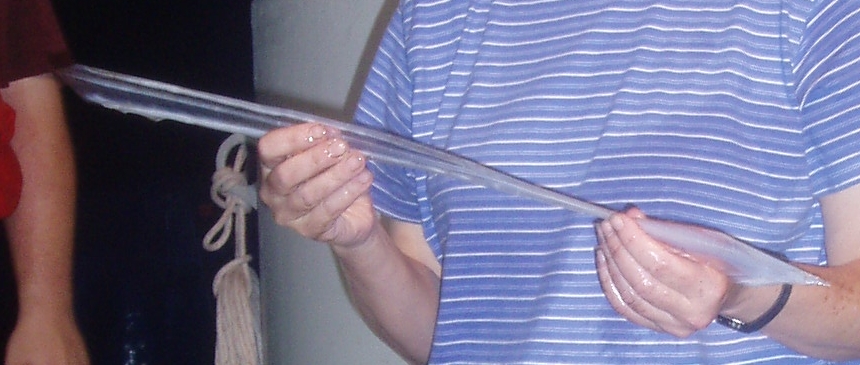That's particularly notable in contrast to biological systems, like you and me. Of course, our bodies are constantly manipulating all kinds of things, from lipids and proteins to vitamins and minerals, but when you get down to the really small stuff, we tend to rely on protons and ions.
Protons, of course, are everyone's favorite positively charged particle (remember, atoms are built of protons, neutrons, and electrons). Ions are much bigger and can be positively or negatively charged (for example, common table salt breaks down into positively charged sodium ions and negatively charged chloride ions).
This electron/proton-and-ion dichotomy makes electronic and biological systems fundamentally incompatible, which is frustrating if you want to see medical technology go in fancy new directions. As explained in IEEE's Spectrum:
Unlike the lightweight electron, which is easily knocked off atoms and can flow freely through a wide variety of metals and semiconductors, the proton has proved far more difficult to harness.But now, finally, researchers have used a material called chitosan to create the first protonic transistor. That is extremely cool.
Chitosan is, of course, extracted from squid, which is why I get to blog about it. But let's be clear about just what part of the squid it comes from. It's not squid ink (as erroneously reported in The Escapist) or even a squid shell (as incorrectly asserted in Spectrum's subhead) since squids don't actually have shells.
Chitosan comes from the squid's pen, which is a stiff but flexible rod built out of protein and buried in the flesh of the squid's mantle. Here's one from a Humboldt squid:

Squids use their pens the same way we use our bones--as a support for muscles to push against. It's one reason they're much better swimmers than octopuses, who have no hard supports at all. (Though of course the pen prevents squids from being nearly as clever about squeezing through small spaces.)
The entire field of neurobiology pretty much owes its existence to the squid's giant axon, so if the chitosan protonic transister turns out to herald a new age of biotechnology, it would be the second time this humble animal has made a major contribution to science. Perhaps it would be time to consider that Nobel Prize for squid.
(I was positive you'd all forgive me two puns in the title.)





Comments